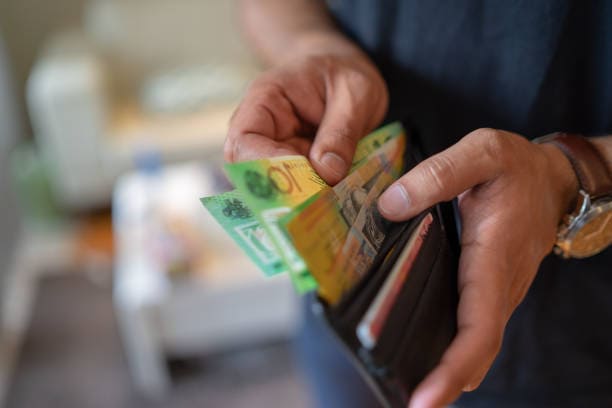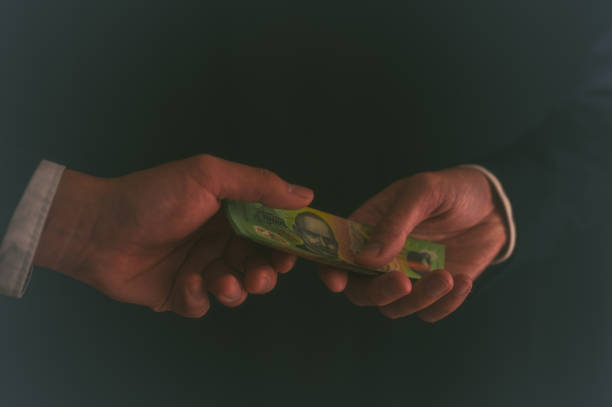Money laundering refers to the processes of concealing the origin of money that parties have obtained illegally. For example, money obtained from illicit activities such as embezzlement, gambling, corruption or drug trafficking. The offender typically conceals the origin of money by converting it to a legitimate source. It often involves foreign banks or legitimate business.
Money laundering is a criminal offence under state, territory and Commonwealth laws in Australia. This is because through money laundering perpetrators often fund serious and organised crimes.
In this article, we outline Sections that deal with money laundering and related offences under Crimes Act 1958 (VIC). Division 2A under Part 1 (Offences) under the act deals with money laundering. We will provide an outline of the following Sections under Division 2A:
Section 193: Definitions related to Money Laundering
Subsection (1) states that in Division 2A, Part 1, the term “deals with” refers to:
- possess,
- conceive,
- receive, or
- dispose of.
Moreover, it states that “instrument of crime” refers to property that is used to facilitate commission of, or in the commission of:
- a) an offence referred to in Schedule 1 to the Confiscation Act 1997 ; or
- b) an offence against a law of the Commonwealth that may be dealt with as an indictable offence (even if it may, in some circumstances, be dealt with as a summary offence); or
- c) an offence against a law of another State, a Territory or a country outside Australia that would have constituted an offence referred to in paragraph (a) if it had been committed in Victoria;
Thirdly, “proceeds of crime” refers to property that is derived or realised, directly or indirectly, by any person from the commission of—
- (a) an offence referred to in Schedule 1 to the Confiscation Act 1997 ; or
- (b) an offence against a law of the Commonwealth that may be dealt with as an indictable offence (even if it may, in some circumstances, be dealt with as a summary offence); or
- (c) an offence against a law of another State, a Territory or a country outside Australia that would have constituted an offence referred to in paragraph (a) if it had been committed in Victoria.
Note that “property” includes money and all other property, real or personal, including things in action and other intangible property.
Furthermore, subsection (2) states that for the purposes of the definitions of “instrument of crime” and “proceeds of crime”, it is necessary to prove facts that constitute one or more offences referred to in paragraph (a), (b) or (c) of those definitions but the particulars of an offence need not be proven.
Section 194: Dealing with Proceeds of Crime
S194 states that a person must not deal with proceeds of crime knowing that it is proceeds of crime and intending to conceal that it is proceeds of crime. The penalty for doing so is level 3 imprisonment that is 20 years maximum.
Subsection (2) states that a person must not deal with proceedings of crime knowing that it is proceeds of crime. The penalty for this offence is level 4 imprisonment that is 15 years maximum.
Furthermore, subsection (3) states that a person must not deal with proceeds of crime being reckless as to whether or not it is proceeds of crime. The penalty of this offence is Level 5 imprisonment that is 10 years maximum.
Subsection (4) states that a person must not deal with proceeds of crime being negligent as to whether or not it is proceeds of crime. Penalty includes level 6 imprisonment that is 5 years maximum.
Lastly, subsection (5) states that it is a defence to a prosecution for an offence under this section if the accused satisfies the court that the accused dealt with the property in order to assist the enforcement of a law of the Commonwealth, a State or a Territory.

Section 195: Dealing with Property Suspected of Being Proceeds of Crime
S195 states that a person who deals with property if there are reasonable grounds to suspect that the property is proceeds of crime is guilty of a summary offence and liable to level 7 imprisonment (2 years maximum).
Section 195A: Dealing with Property Which Subsequently Becomes an Instrument of Crime
Subsection (1) states that a person is guilty of an offence and liable to level 4 imprisonment if:
- they deal with property intending that the property will become an instrument of crime; and
- the property subsequently becomes an instrument of crime.
Subsection (2) states that a person is guilty of an offence and liable to level 5 imprisonment if:
- they deal with property being reckless as to whether or not the property will become an instrument of crime; and
- the property then becomes an instrument of crime.
Moreover, subsection (3) states that a person is guilty of an offence and liable to level 6 imprisonment (5 years max) if:
- the person deals with property being negligent as to whether or not the property will become an instrument of crime; and
- the property subsequently becomes an instrument of crime
Furthermore, S195A states that the commencement of prosecution for an offence under this Section must happen after the consent of the Director of Public Prosecutions.
Lastly, it is a defence to a prosecution for an offence under this section if the accused satisfies the court that they dealt with the property to assist the enforcement of a State, Territory or Commonwealth law.
Australian Federal Police and Money Laundering
The Australian Federal Police has employed a money-laundering strategy. The strategy – called Operation Avarus – guides the investigation and intelligence teams to combat money laundering.
You can report money laundering on the AFP website here. Moreover, if you are in need of legal advice for any criminal matter, it is necessary to speak with leading solicitors.
For more information, contact our team of lawyers today.
